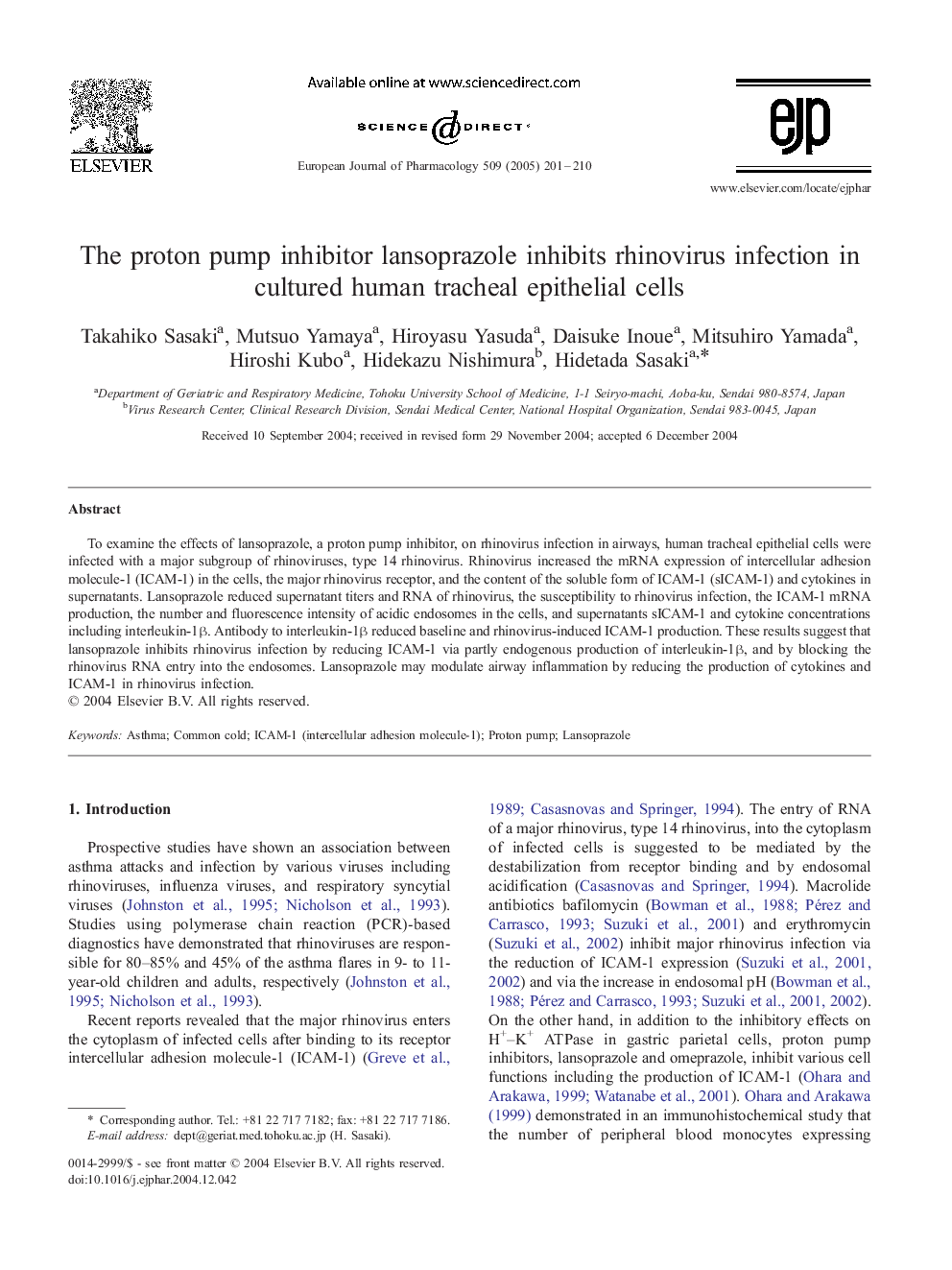| Article ID | Journal | Published Year | Pages | File Type |
|---|---|---|---|---|
| 9921497 | European Journal of Pharmacology | 2005 | 10 Pages |
Abstract
To examine the effects of lansoprazole, a proton pump inhibitor, on rhinovirus infection in airways, human tracheal epithelial cells were infected with a major subgroup of rhinoviruses, type 14 rhinovirus. Rhinovirus increased the mRNA expression of intercellular adhesion molecule-1 (ICAM-1) in the cells, the major rhinovirus receptor, and the content of the soluble form of ICAM-1 (sICAM-1) and cytokines in supernatants. Lansoprazole reduced supernatant titers and RNA of rhinovirus, the susceptibility to rhinovirus infection, the ICAM-1 mRNA production, the number and fluorescence intensity of acidic endosomes in the cells, and supernatants sICAM-1 and cytokine concentrations including interleukin-1β. Antibody to interleukin-1β reduced baseline and rhinovirus-induced ICAM-1 production. These results suggest that lansoprazole inhibits rhinovirus infection by reducing ICAM-1 via partly endogenous production of interleukin-1β, and by blocking the rhinovirus RNA entry into the endosomes. Lansoprazole may modulate airway inflammation by reducing the production of cytokines and ICAM-1 in rhinovirus infection.
Related Topics
Life Sciences
Neuroscience
Cellular and Molecular Neuroscience
Authors
Takahiko Sasaki, Mutsuo Yamaya, Hiroyasu Yasuda, Daisuke Inoue, Mitsuhiro Yamada, Hiroshi Kubo, Hidekazu Nishimura, Hidetada Sasaki,
